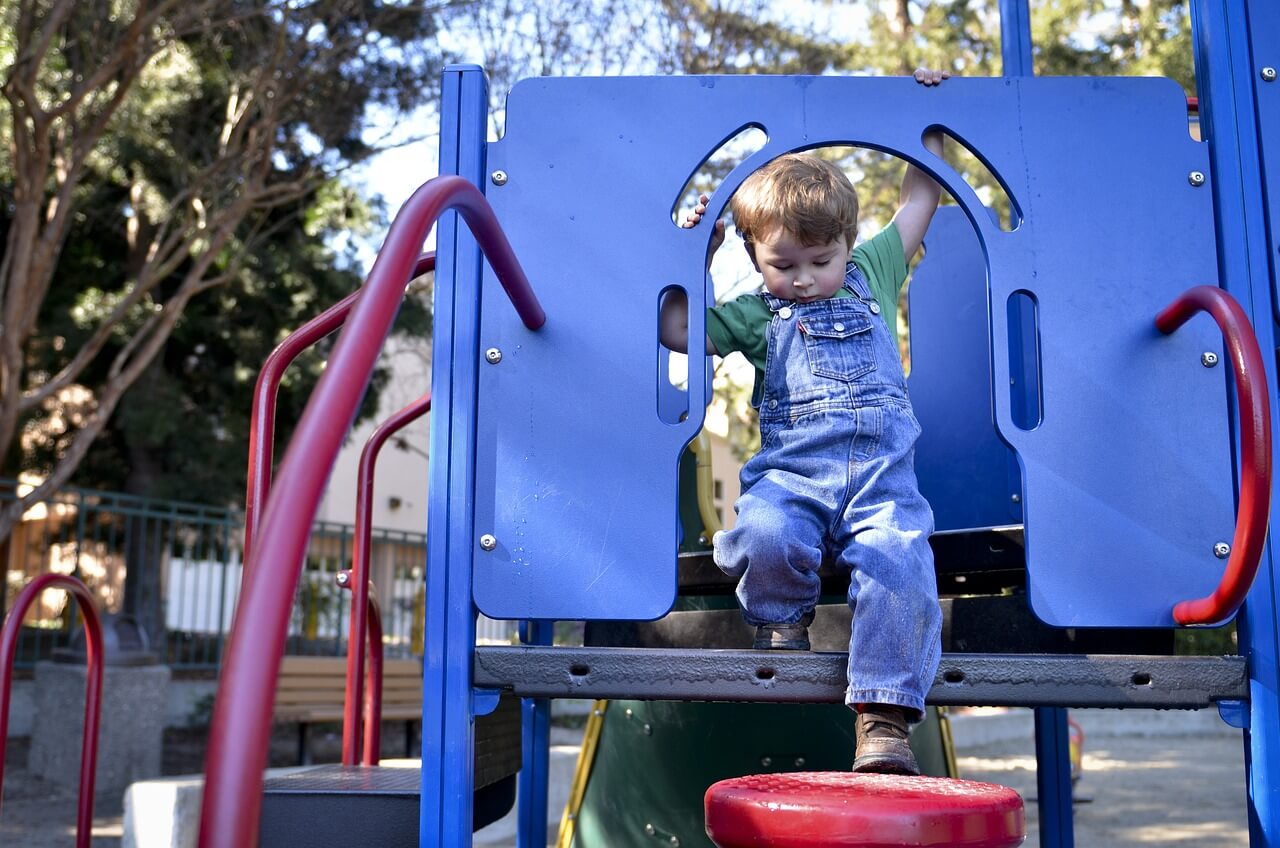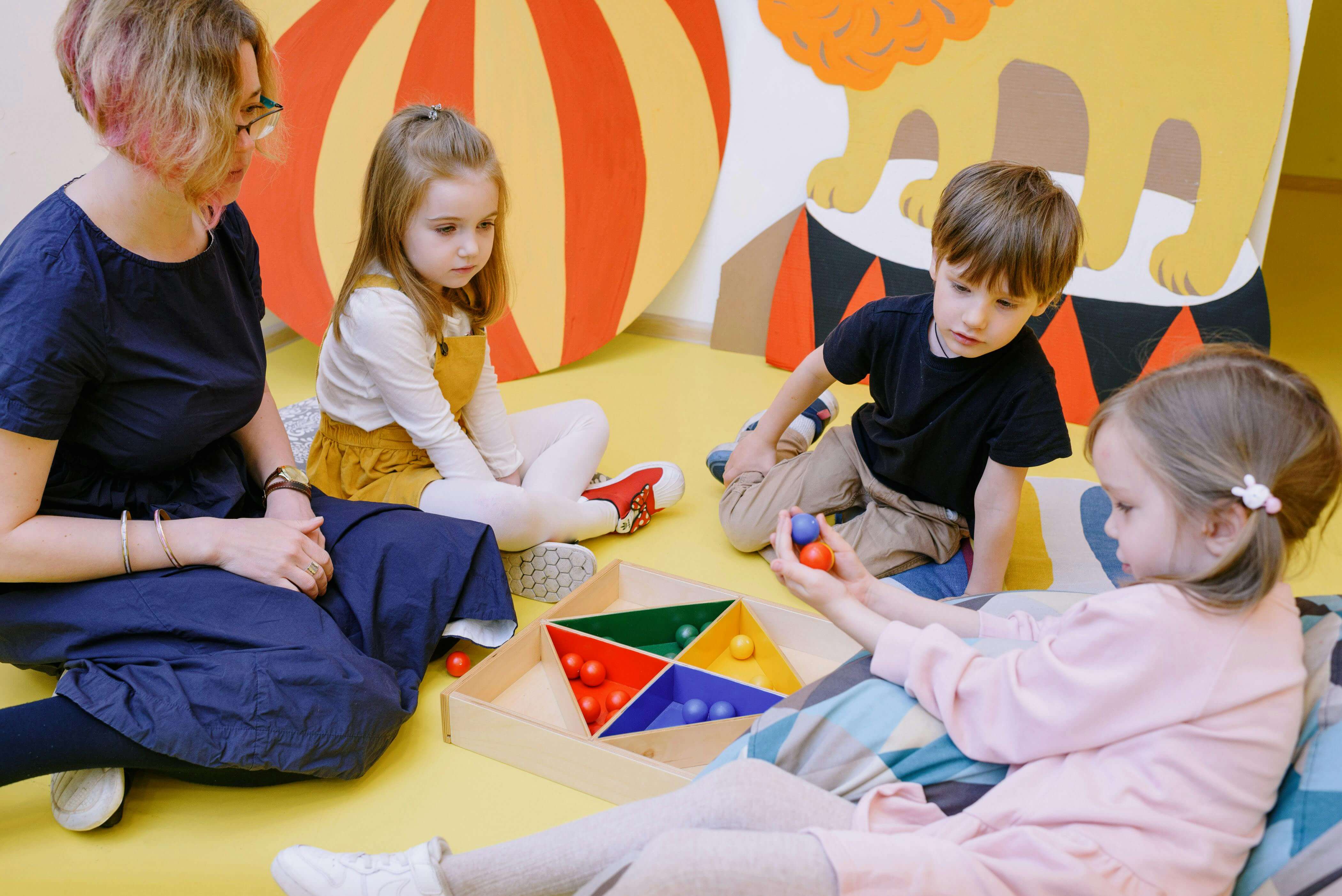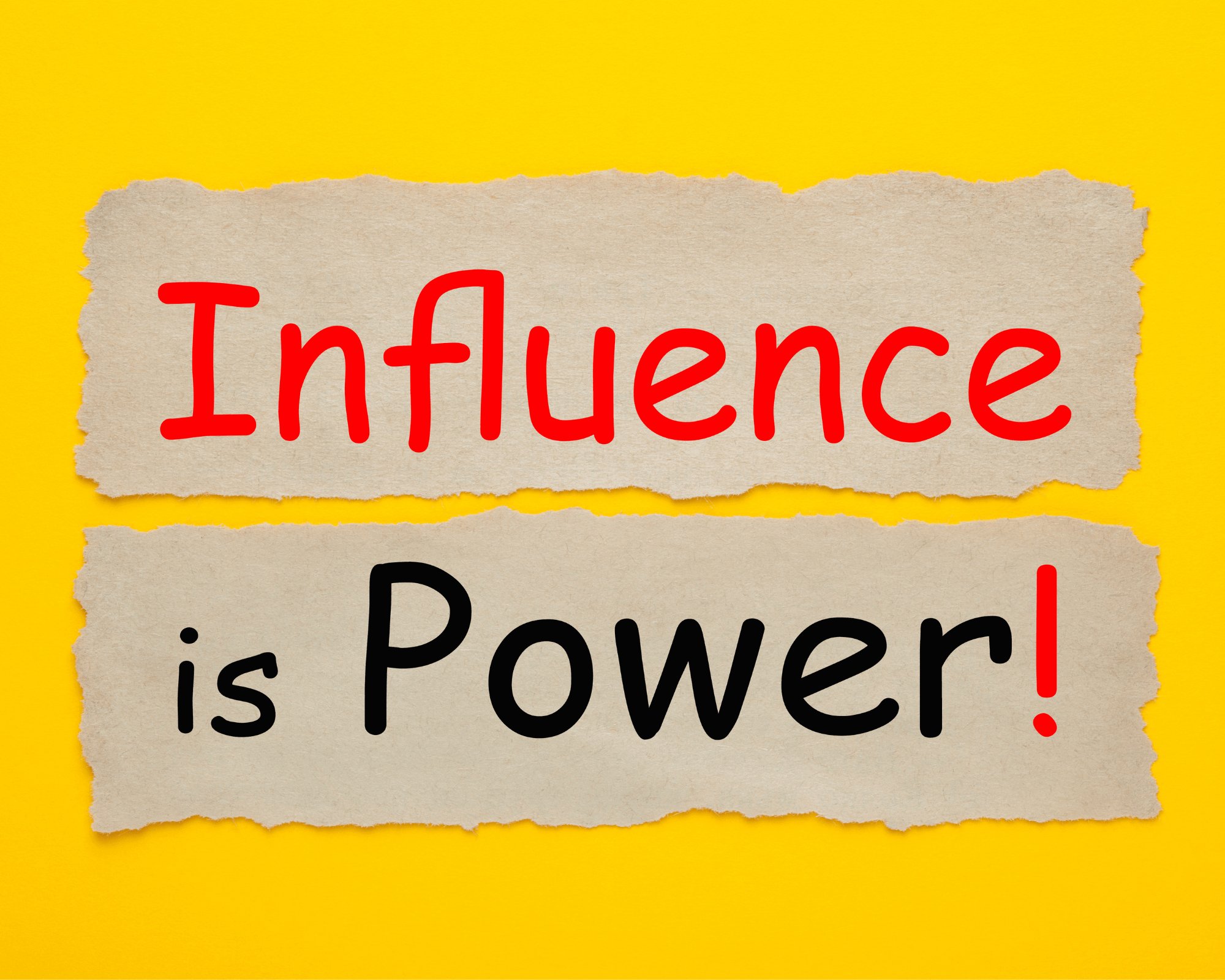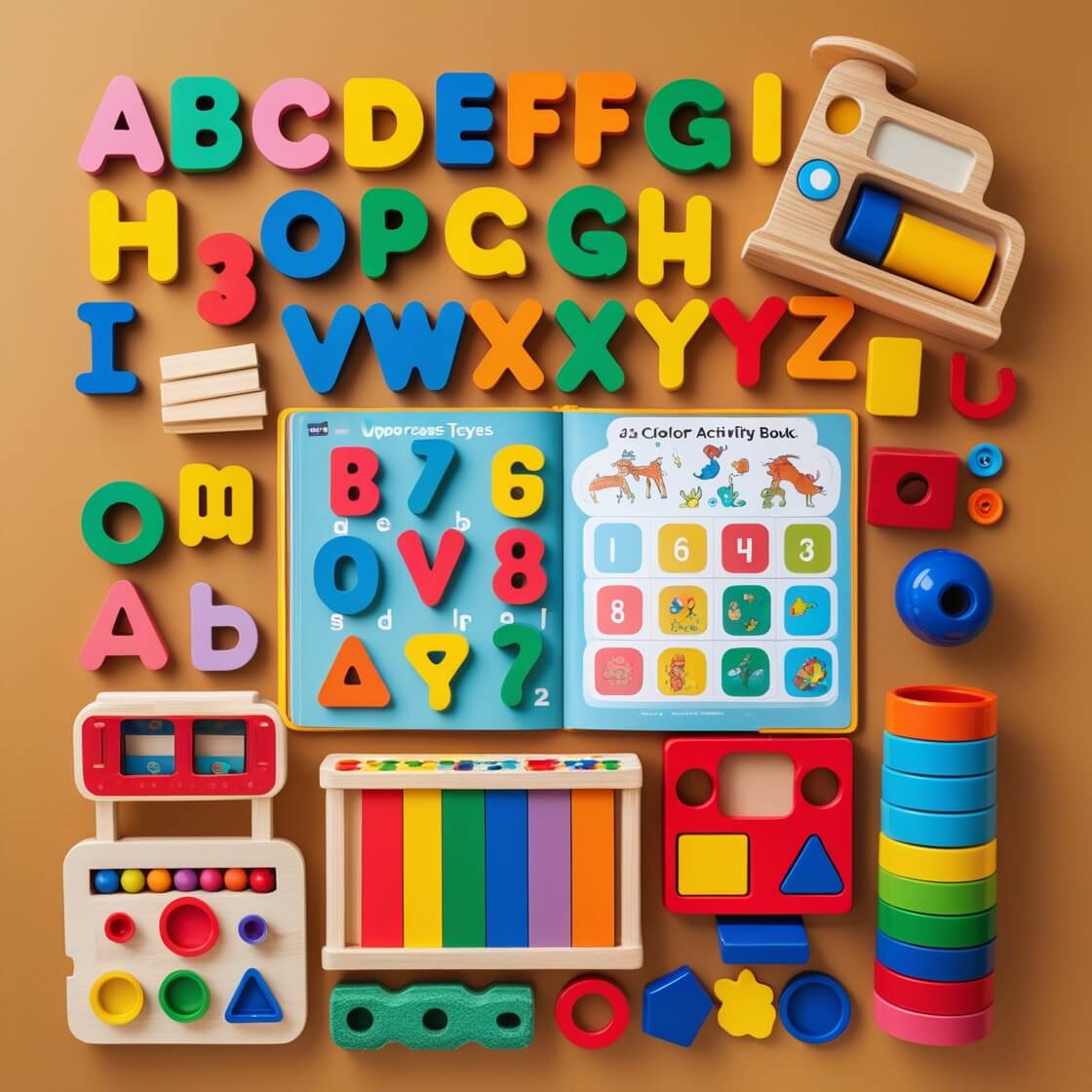Daycare vs Preschool: What’s the Difference?
Although preschool and daycare are different, they do share some similarities and with so many options available, how do you decide between daycare vs preschool?
 Children helping the teacher to paint a cardboard car on the floor.
Children helping the teacher to paint a cardboard car on the floor.Each program is different in their own way with unique benefits. The following are the key differences of each so that you may hopefully make the best choice for your child.
Understanding Daycare
What is Daycare & Who Benefits?
Daycare offers children care from infancy to age five and also kids up to the ages of 6 to12 for before and after school programs.
The main focus of daycare is to provide a safe and nurturing environment for kids whose parents work or are in need of respite.
Key Features of Daycare:
- Age Range: Daycares accept a wide range of ages, from infants to preschoolers to 12 year olds.
- Hours of Operation: They usually offer extended hours to accommodate working parents, often from early morning until late evening.
- Flexibility: Many daycares offer flexible scheduling, including part-time, full-time, and drop-in options.
- Care Focus: The primary goal is caregiving, including feeding, napping, freeplay and circle-time.
Some daycares may incorporate basic learning activities, but the emphasis is on care rather than structured education.
- Staff Qualifications: Staff may not be required to have specialized early education training, though they are trained in childcare and safety.
Exploring Preschool
What is Preschool & Who Benefits?
Preschool is an educational program designed for children and prepares them to enter kindergarten smoothly.
Preschool is best for parents who want to give their children an early start on education. It’s especially valuable for families looking to ease the transition into formal schooling.
 Boy outside on climber during outdoor time at daycare.
Boy outside on climber during outdoor time at daycare.Key Features of Preschool:
- Age Group: Preschools typically serve children between the ages of 3 and 5, preparing them for kindergarten.
- Educational Focus & Structure: Preschools emphasize early childhood education.
Preschools follow a structured curriculum aimed at early learning, including basic math, literacy, and social skills.
- Schedule: Preschools often have shorter hours, similar to a school day, and may operate on a school-year calendar with holidays and summer breaks.
- Focus: The emphasis is on education and preparing children for the transition to kindergarten.
- Teachers: Staff members usually have specific training or credentials in early childhood education.
Key Differences Between Daycare vs Preschool
To better understand daycare vs preschool, let’s compare them across several important factors:
1. Age Group:
- Daycare: Infants to twelve years old.
- Preschool: Generally three to five years old.
2. Curriculum:
- Daycare: Emphasis on care and play, with some basic educational activities.
- Preschool: Structured curriculum focused on early learning and school readiness.
3. Hours of Operation:
- Daycare: Extended hours, often from early morning to evening.
- Preschool: Shorter hours, usually matching a typical school day.
4. Flexibility:
- Daycare: Flexible schedules, including full-time, part-time, and drop-in options.
- Preschool: Set schedules with limited flexibility.
5. Cost:
- Daycare: Can be more expensive due to longer hours and broader age range.
- Preschool: Often less expensive but may have additional costs for supplies or activities.
 Teacher at preschool is teaching the children to match colors.
Teacher at preschool is teaching the children to match colors.Making the Right Choice for Your Child
Choosing between daycare vs preschool depends on your family's needs, your child’s age, and your personal preferences.
Here are some considerations to help guide your decision:
1. Your Work Schedule: If you work long hours or need flexible care, daycare might be the better option.
The extended hours and flexible scheduling can provide the support you need.
2. Your Child’s Age: Younger children and infants will likely thrive in a daycare setting where the focus is on caregiving.
Older toddlers and preschool-aged children may benefit more from the structured learning environment of preschool.
3. Educational Goals: If early education and preparation for kindergarten are priorities, preschool could be the better choice. Preschools are designed to foster early learning and help children develop key skills.
4. Socialization Needs: Both daycare and preschool offer socialization opportunities, but the type of interaction may differ.
Daycares provide mixed-age group interaction, while preschools focus on peer-to-peer learning and group activities.
Tips for Choosing the Right Program
- Visit Multiple Facilities: Take the time to visit several daycares and preschools. Observe the environment, meet the staff, and ask about their philosophies and daily routines.
- Ask About Curriculum and Activities: Inquire about the types of activities and learning opportunities offered. For preschools, ask about the curriculum and how it prepares children for kindergarten.
- Consider Logistics: Think about the location, hours, and convenience. Choose a facility that fits well with your daily routine and work schedule.
- Check Credentials: Ensure the facility is licensed and staff members are trained and qualified. This is crucial for both daycares and preschools.
 Little girl playing on floor while at daycare.
Little girl playing on floor while at daycare.Final Thoughts
The decision between daycare vs preschool is a personal one, and there’s no right or wrong answer. Each option can benefit your child in one way or another.
You may be best to think of what your family needs and your child’s personality and most of all your long-term goals to make the best choice.
Remember, whether you choose daycare or preschool, the most important factor is finding a loving, supportive environment where your child can grow, learn, and thrive.
Don’t hesitate to reach out, visit facilities, and ask questions—you’re your child’s best advocate and biggest supporter!
















